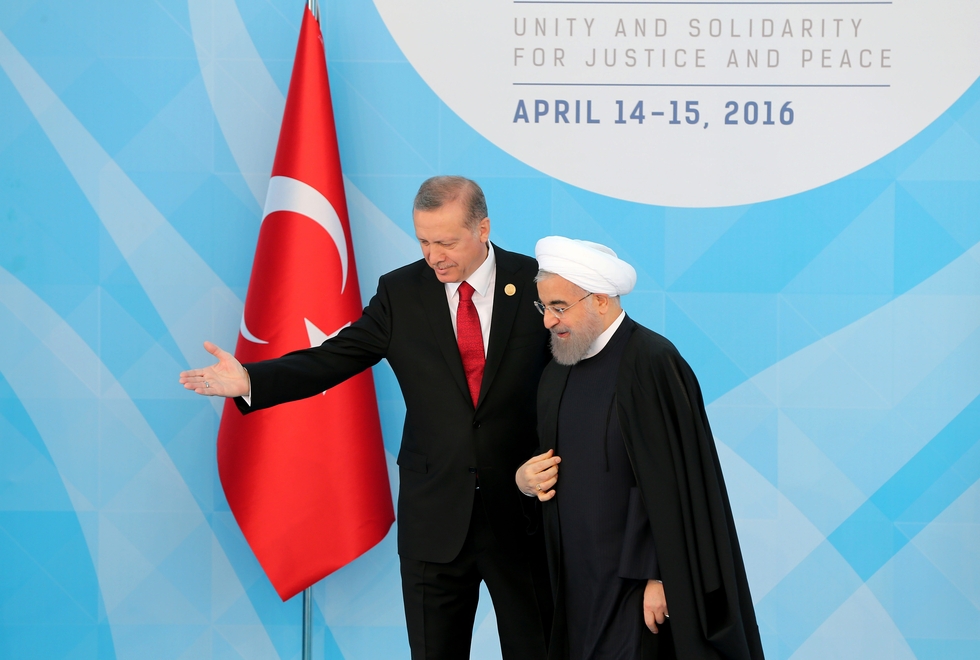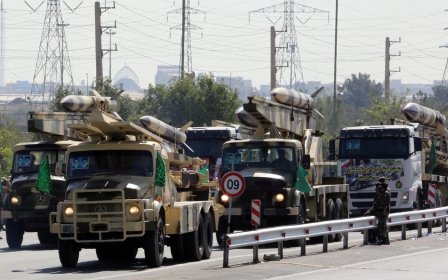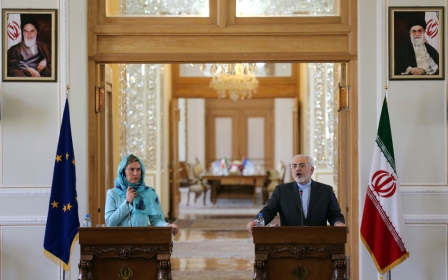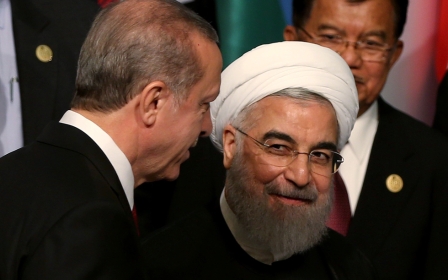ANALYSIS: Saudi-Iran summit fallout - the rift that keeps on giving

The 13th Organisation of Islamic Cooperation (OIC) in Istanbul came to a close on Sunday having sown more discord in the Islamic world than the unity it was meant to achieve.
The region's two biggest rivals, Iran and Saudi Arabia, came head-to-head, with the kingdom leading a summit statement that denounced Tehran’s role in the Arab world.
"The conference deplored Iran’s interference in the internal affairs of the states of the region and other member states including Bahrain, Yemen, Syria, and Somalia, and its continued support for terrorism," said the final communiqué.
Since the statement, Iranian media, particularly newspapers in the capital Tehran, have defended the Islamic Republic in the face of continued attacks by regional powers.
But analysts and commentators are split over what the summit's fallout means.
Several commentators, including the reformist newspaper Aftab Yazd, said the fact that the statement was published online, but not read aloud in Istanbul is a sign that Riyadh floundered in its attempt to build an anti-Iran alliance among member states.
“The trio of Saudi Arabia, Egypt and Turkey failed,” said Hossain Kanani Moghadam, a conservative political analyst.
“Egyptians and Turkish officials do not have a good relationship - even Erdogan and Egypt’s foreign minister refrained from handshaking. Plus, the Egyptian president wasn’t present at the summit,” he added. “This means there are big disagreements in the way of a Saudi alliance against Tehran.”
But others, like the ultra-conservative newspaper Vatane Emrooz, said Saudi hostility towards Iran is no surprise, and questioned why President Hassan Rouhani was at the conference in the first place.
“During recent years, Iran’s foreign ministry has been trying to talk with the Saudis in a friendly manner. Zarif has repeatedly described the Saudi officials as brothers and friends of Iran,” said an opinion piece in Vatane Emrooz.
“This approach not only has encouraged the Saudis to change their attitude, but it has also intensified their anti-Iranian measures.”
Four paragraphs
The conference comes just months after relations between Riyadh and Tehran plummeted in January, following the execution of Shia Saudi cleric Sheikh Nimr al-Nimr and subsequent attacks against Saudi Arabia’s embassy in Tehran.
With both countries on opposite sides of regional conflicts including those in Syria and Yemen, mediation appears to be some way off between the rivals.
Some outlets have claimed the anti-Iranian part of the statement was agreed in February at an OIC-linked meeting in Jeddah to which Iranians were unable to obtain visas to attend.
After seeing a draft of the final communiqué, Iranian Foreign Minister Mohammad Javad Zarif said the paragraphs denouncing Iran, and others against Tehran ally, the Lebanese militia Hezbollah, were against the “spirit of Islamic solidarity” and only served Israeli interests.
Zarif also accused Riyadh of attempting to use the OIC to achieve political goals, drawing similarities with tactics deployed by the late rule of Iraq's Saddam Hussein, who regularly denounced Tehran at the OIC during the Iran-Iraq war of the 1980s.
Iranian media claimed that Rouhani attempted to have the anti-Iran paragraphs removed.
A photograph of Rouhani speaking to Turkish President Recep Tayyip Erdogan was published by various outlets, with reports claiming the Iranian leader was warning his Turkish counterpart against the statement.
“Rouhani notified Erdogan that he wouldn’t attend the final summit if the anti-Iranian articles were planned to be included in the final statement,” said a source close to the Iranian foreign ministry who spoke to MEE on condition of anonymity.
Rouhani also took to social media to call for the OIC to focus on unity, rather than division, and he tweeted: “No divisive message should be sent from the OIC Summit which has been held with the name of unity.”
In the end, the statement went ahead as drafted in Jeddah and both Rouhani and Zarif boycotted the final meeting in protest at the criticism.
Conciliatory tone?
Yet ahead of the drama created around the communiqué, the Iranian president’s speech at the OIC hinted at a desire to repair ties.
“It is crystal clear that neither Saudi Arabia is regarded as Iran's problem, nor Iran is regarded as Saudi's problem,” he told the summit.
“The main issue is ignorance, prejudice and violence which are now regarded as the main hurdle and root cause of discords in the Islamic world. The Islamic Republic of Iran has always backed Muslim countries and Muslims against aggressions, threats, occupation and terrorism”.
While some have criticised the president for attending the conference in the wake of the communiqué, most newspapers have stood by his decision with the Aftab Yazd daily praising him for choosing “the best available option”.
“He attended the OIC meeting, and showed his objection to the unfair attacks against Tehran wisely. By going to the Istanbul summit, Rouhani proved that Iran is a courageous nation in the face of movements of some Arab countries,” it reported.
Political analyst Kanani Moghadam agreed, calling further engagement from Iran in future summits, regardless of Iran’s critics.
“I think what President Rouhani stated at the OIC meeting was decisive and remarkable. We should be active in diplomatic summits, and not let the unfair attacks make us leave the battle,” he said.
Heshmatollah Falahat Pishe, a former member of Iran’s parliament, said Iran should maintain its strategy of diplomatic outreach.
"For dealing with some of the Arabs’ countries strategies, which damages the Muslim world, Iran should make a détente with the world, even the United States," he said. "We shouldn’t allow the crises to be heightened, and we should enhance our relationships with regional countries like the UAE, which has an interest in trading with Tehran.“
“With respect to Turkey’s positive measure in not reading the final statement, I think we should wait for mediation between Iran and Saudi Arabia by Erdogan," he added.
Middle East Eye propose une couverture et une analyse indépendantes et incomparables du Moyen-Orient, de l’Afrique du Nord et d’autres régions du monde. Pour en savoir plus sur la reprise de ce contenu et les frais qui s’appliquent, veuillez remplir ce formulaire [en anglais]. Pour en savoir plus sur MEE, cliquez ici [en anglais].




